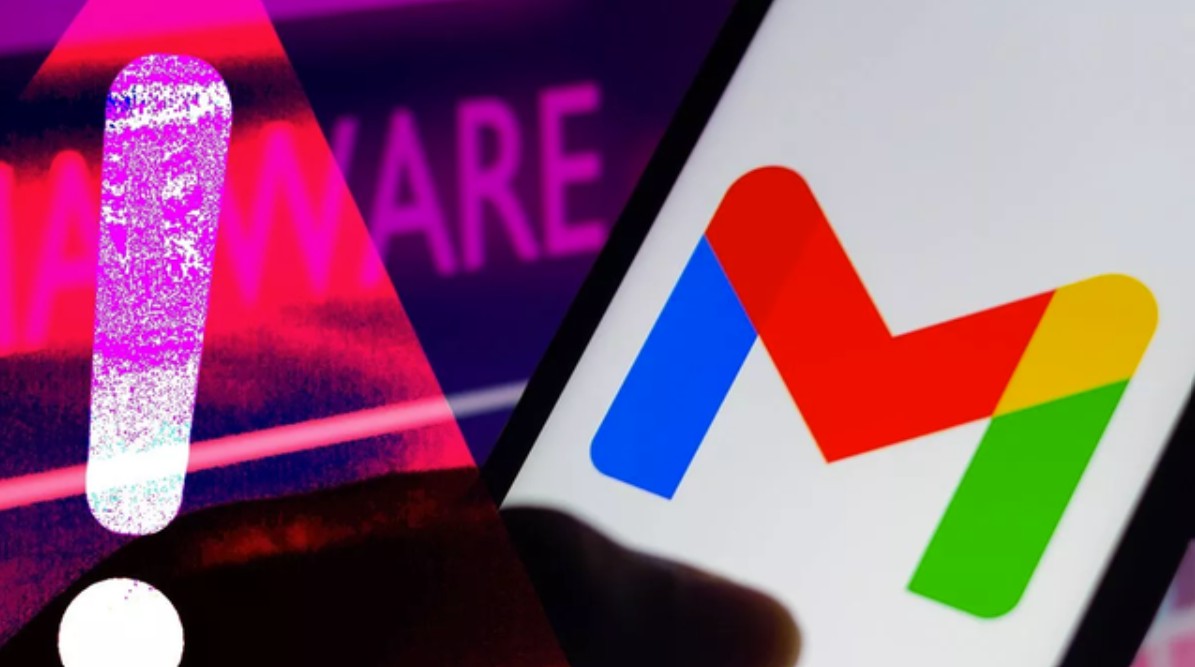Best Selling Products
Google issues urgent warning: 1.8 billion Gmail users face risk of being scammed
Nội dung
A series of recent security incidents have provided a glimpse into the challenges facing Google users. One of them was the hacking of Google’s Salesforce system, which resulted in the leak of customer data.

Over the past two decades, Gmail has become one of the most popular email services in the world, with about 1.8 billion personal and business users. Gmail is not only a place to send and receive emails, but also a hub connecting many other services in the Google ecosystem such as Google Drive, Google Photos, Google Meet or Google Calendar. This makes Gmail accounts one of the most important digital assets that every user needs to protect.
At the same time, Google Cloud is also growing strongly, serving millions of businesses from small to large around the world. Many companies use this platform to store databases, operate online systems and deploy customer services. Because of this importance and popularity, Gmail and Google Cloud have become the top targets for cyber attackers. Just by hijacking a Gmail account or illegally accessing the Google Cloud system, hackers can easily steal personal information, business data or conduct other fraudulent activities.
A series of recent security incidents have provided a glimpse into the challenges facing Google users. One of them was the hacking of Google’s Salesforce system, which resulted in the leak of customer data. Although Google has confirmed that the leaked information is mostly public data, not related to passwords or sensitive information, the incident still raises concerns about the security of the system. More importantly, it has become an opportunity for scammers to take advantage of it, launching a series of sophisticated tricks to hijack users’ accounts.
1. Scammers and their sophisticated attack methods
As users increasingly rely on Gmail and Google Cloud, attackers have capitalized on their anxiety with increasingly sophisticated phishing scams. Several recently discovered techniques show how hackers exploit users’ psychology and lack of vigilance.
.png)
A popular method reported on Reddit shows that many Gmail users receive messages or calls from phone numbers with the area code 650, which is the area code for Google's headquarters in California, USA. Taking advantage of this detail, the scammer claims to be a Google employee, calling to warn about a serious security vulnerability affecting the victim's Gmail account. In a convincing and urgent tone, they ask the user to immediately change their password, even giving specific instructions on how to reset the password. However, the real trick here is that the victim is lured into providing login information directly to the scammer, thereby completely losing control of their account.
In addition to phone calls impersonating Google employees, another technique on the rise is called “dangling buckets.” This is a tactic that targets Google Cloud, in which hackers test outdated or unprotected access points. Once they find a vulnerability, they can upload malware, gain access to Google Cloud accounts, or steal sensitive data. Notably, this form of attack affects not only large corporations but also small and medium-sized businesses, which often lack the resources to maintain optimal security systems.
The danger of these attacks lies in the fact that they prey on users’ fear. In an era where news of data leaks and security breaches is constantly emerging, receiving a warning call from “Google” can easily make many people let their guard down. Scammers take advantage of this to turn what seems to be an “account protection” action into a sophisticated trap.
2. Unforeseeable consequences for businesses and individuals
When a Gmail or Google Cloud account is compromised, the consequences go beyond losing access to email. For individual users, Gmail accounts are often linked to countless other services: from social networks to online banking to learning and work platforms. Once a hacker has control of Gmail, they can reset passwords on many other services, opening a chain of attacks.
.png)
For businesses, especially those using Google Cloud to store their data, the risks are even more serious. A successful attack could result in customer data being compromised, causing financial loss, brand reputation damage, and even legal action. Startups that rely heavily on customer trust could lose growth opportunities after a single security incident.
Furthermore, the rise of phishing scams has also caused users to lose confidence in the security of the service. Although Google has repeatedly stated that it never contacts users by phone to report security breaches, not everyone knows this. As suspicions spread, trust in Gmail and Google Cloud is at risk of being shaken, affecting the entire Google ecosystem.
3. How to protect your Gmail and Google Cloud accounts
In the context of increasingly complex threats, users need to equip themselves with the necessary knowledge and security tools to protect their Gmail and Google Cloud accounts.
First and foremost, it’s important to realize that Google will never call individual users to notify them of a security breach. With 1.8 billion Gmail accounts, manually calling each individual would be impossible, so any call or message claiming to be from Google should be treated with skepticism.
In addition, users should regularly use the Security Checkup feature provided by Google. This is an online tool that allows you to review the security status of your account, providing necessary recommendations such as removing suspicious applications, updating your login method, and checking the device you are using. This tool is especially useful in detecting potential security vulnerabilities that users often overlook.
.png)
A more advanced option is to enroll in Google’s Advanced Protection Program , which is designed for people at high risk of attack, such as journalists, business people, politicians, or system administrators. By enrolling, users are protected with tighter layers of security, including requiring a physical security key to log in, restricting access to third-party apps, and blocking dangerous email attachments.
In addition to the tools Google provides, users should also follow the basic principles of online safety. First, never click on unexpected links in emails or text messages, even if they appear to come from a legitimate address. Second, never give out personal information or passwords over the phone, as this is a common channel for scammers.
Using a reliable password manager is also an effective way to enhance security. Instead of remembering or repeating passwords, users can let the password manager generate complex password strings and store them securely. Combined with enabling two-step verification (2FA) for Google accounts, the possibility of an account hijacker will be significantly reduced.
Finally, changing your password regularly and monitoring for unusual login activity are also basic but extremely important steps. Gmail has a notification feature that detects logins from unfamiliar locations, and users should react immediately when they receive this warning.
.png)
4. Conclusion
The phishing attacks on Gmail and Google Cloud show that, no matter how hard tech companies try, users are still the most important link in the security chain. A moment of carelessness can allow an attacker to take over an account, with potentially devastating consequences.
In a digital age where personal and corporate data is more valuable than ever, vigilance is the first and most important layer of protection. Users need to understand that security is not just the responsibility of Google or any other technology company, but also the responsibility of each individual.
Staying informed about new forms of attack, using modern security tools and following online safety guidelines will help you minimize the risk of becoming a victim. Protecting your Gmail account also means protecting your digital identity, digital assets and your own safety in cyberspace.












































